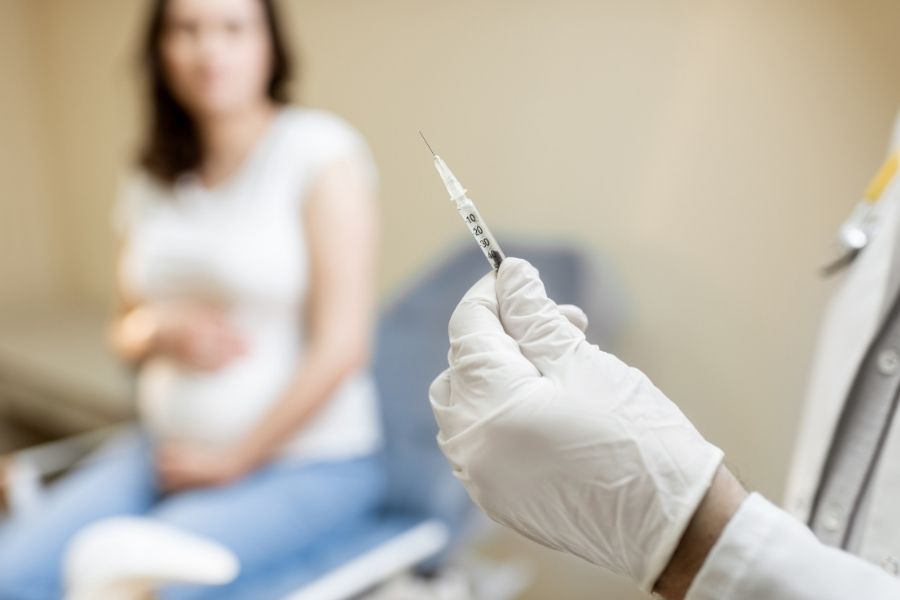The ongoing global battle against the pandemic has been marked by significant scientific achievements, with the rapid development and distribution of vaccines at the forefront. While vaccines have proven to be instrumental in preventing severe illness and reducing the transmission of the virus, questions have emerged about their safety and efficacy in specific populations, particularly pregnant individuals. As we approach the booster-dose season, this post delves into the current understanding of COVID-19 vaccine administration during pregnancy, based on reputable sources in the medical field.
The Importance of Vaccination:
Vaccination has historically played a pivotal role in controlling the impact of infectious diseases. The COVID-19 vaccines, developed with unprecedented speed, have undergone rigorous testing and monitoring to ensure their safety and effectiveness. Beyond individual protection, vaccination contributes to community-wide immunity, a critical factor in overcoming the challenges posed by the pandemic.
Recommendations:
As of our last knowledge update, major health organizations, including the Centers for Disease Control and Prevention (CDC), the World Health Organization (WHO), the American College of Obstetricians and Gynecologists (ACOG), and the Society for Maternal-Fetal Medicine (SMFM), recommend COVID-19 vaccination for pregnant individuals. These recommendations are rooted in the understanding that the benefits of vaccination outweigh the potential risks. The CDC specifically emphasizes that pregnant individuals are at an increased risk of severe illness from COVID-19 when compared to non-pregnant individuals. Severe illness during pregnancy can lead to adverse outcomes such as preterm birth. By getting vaccinated, pregnant individuals not only protect themselves but also reduce the risk of severe outcomes associated with COVID-19.
Safety Considerations:
Research studies and real-world evidence have not identified serious safety concerns associated with COVID-19 vaccination during pregnancy. It’s crucial to address concerns related to the type of vaccines available. The mRNA vaccines are among the options. These vaccines do not contain live virus and cannot cause COVID-19. Instead, they prompt an immune response to the spike protein of the virus. Moreover, the vaccines do not alter DNA, and they do not remain in the body after vaccination. The mRNA from the vaccine never enters the nucleus of the cell, which is where our DNA is located. Therefore, there is no risk of genetic changes to the individual or their future children.
Potential Benefits for Pregnant Individuals:
Apart from protecting against severe illness, vaccination during pregnancy may offer additional benefits. Antibodies generated in response to the vaccine may pass to the baby through the placenta and provide some level of protection during the early months of life when they are not eligible for vaccination. Furthermore, vaccination may reduce the risk of certain pregnancy complications associated with COVID-19, such as preterm birth. While research on these aspects is ongoing, the potential benefits highlight the multifaceted advantages of getting vaccinated during pregnancy.
Addressing Common Concerns:
Despite the reassuring data, some individuals may still harbor concerns about the safety of COVID-19 vaccines during pregnancy. Addressing these concerns involves open communication between pregnant individuals and their healthcare providers. Healthcare professionals can provide personalized guidance based on individual health status, medical history, and potential risk factors. It’s crucial to recognize that the decision to get vaccinated during pregnancy is a personal one. Open and transparent discussions with healthcare providers allow individuals to make informed choices that align with their values and preferences. Health professionals can provide evidence-based information, address specific concerns, and offer support throughout the decision-making process.
Conclusion:
As the landscape of the COVID-19 pandemic continues to evolve, staying informed and seeking guidance from healthcare professionals remain paramount. The evidence to date suggests that COVID-19 vaccination is generally safe during pregnancy, providing a valuable tool to protect both mothers and infants from severe illness. However, individual circumstances may vary, and it’s crucial to consult with healthcare providers for personalized advice. In navigating the decision to receive the COVID-19 vaccine during pregnancy, individuals are encouraged to weigh the potential risks against the well-established benefits. The collaborative efforts of healthcare providers, researchers, and public health organizations contribute to the ongoing understanding of the vaccine’s safety and efficacy in diverse populations, fostering a collective approach to overcoming the challenges posed by the pandemic.



